[ad_1]
Skip the long lists of impractical ways to wear a scarf, these 4 can handle anywhere you need to go.
Men’s neckwear options have become all but non-existent in our increasingly casual world, the humble, practical scarf is all that remains. Sure, the standard neck tie and bow tie still make the rare appearance at weddings or other, maybe, once per year events for the common man – more of an accessory of a formal costume than a normal thing a guy might wear.
Ascot? A mere artifact lost to time. Bolo? Takes a specific location (or confident swagger) to make that daily attire. Even the cravat, the precursor to all modern men’s neckwear, including the scarf, is merely a chapter in an 18th-century history of men’s fashion.
Perhaps it’s just the functional winter warmth aspect that has as of yet kept the men’s scarf still a normal appearance in a man’s cold weather wardrobe. Even so, the visual contribution a scarf can add to a man’s outfit is something I’ll celebrate until it too goes the way of the continental tie.
Just consider Primer style contributor Daniel Baraka’s elegant and minimalist winter outfit featured here. Sans scarf it’s a great, intentional look that makes use of a limited neutral browns color palette. Adding the bold blue scarf transitions the minimalism into the coordinated base of a vibrant outfit.
Like anything neckwear related on the internet, if you search for how to tie a scarf, you’ll be inundated by ridiculously long lists featuring the scarf knot equivalent of the Eldridge tie knot.
“I am a big fan of scarves, but even I was overwhelmed when I got into them, with the million ways to tie them. I think a scarf is an accessory that shouldn’t call too much attention or feel too overcomplicated,” Daniel tells me. “After years of trial and error, my four ways have simplicity in common.”
Why Different Scarf Knots Matter
Like its necktie cousin, choosing how to tie a scarf does have some practical implications. Beyond tightness or closeness, which impacts the warmth provided, the different ways of tying a scarf can also impact:
- How bulky of a silhouette the scarf provides around the neck: A thick scarf may look comically large if using a more elaborate method.
- How refined you want the scarf to be: With dressier or more elegant outfits and occasions, tying a scarf with a more elaborate method can make the practical accessory feel more cohesive with what your wearing, for example, with a suit and topcoat.
- How easy it is to remove: If you’re coming in and out a lot or putting it on knowing you’ll be taking it off soon, a simpler method will get you there without the fuss.
- The length of the scarf: Scarves come in different lengths and widths, and just like a necktie, you can adjust how long or short the tails are by wrapping the scarf with a simpler or more elaborate method.
1. The Once Around Scarf
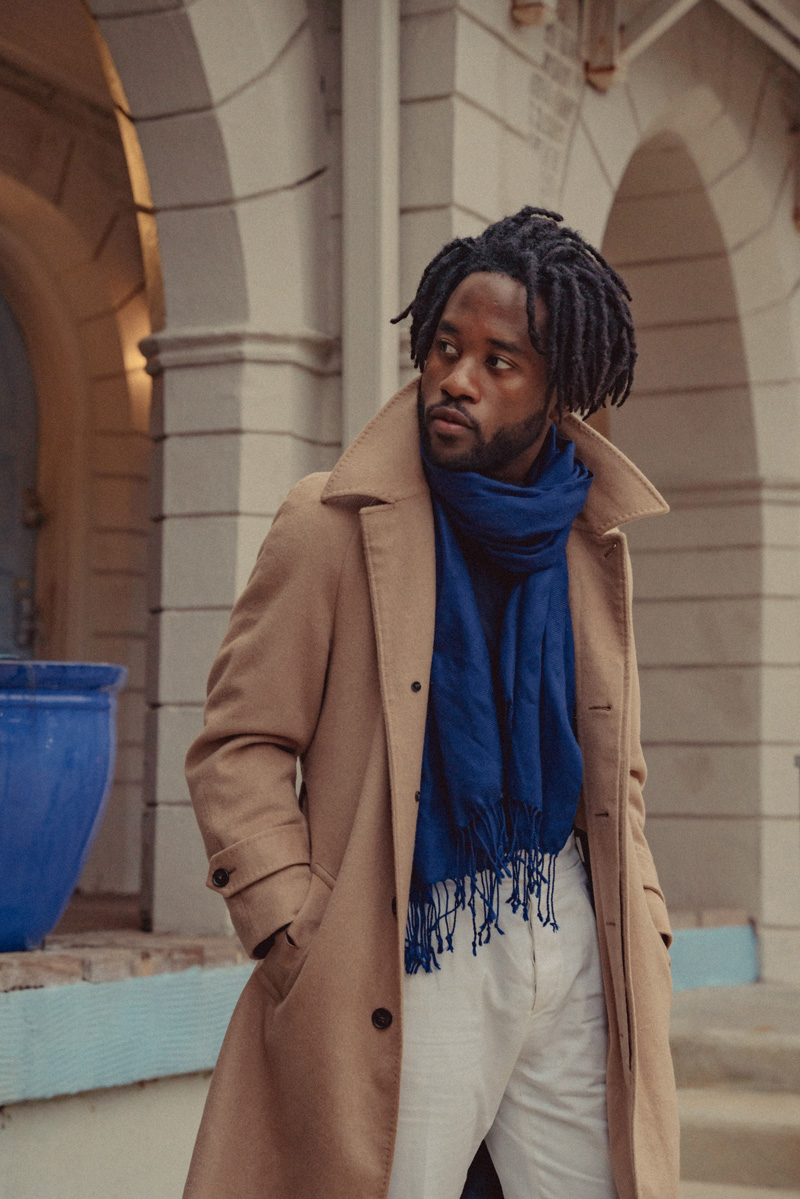

The rakish classic, the once around creates a loose, unstructured appearance that keeps your neck warm without making you look like you’re tying a half windsor on your way out of the exit.
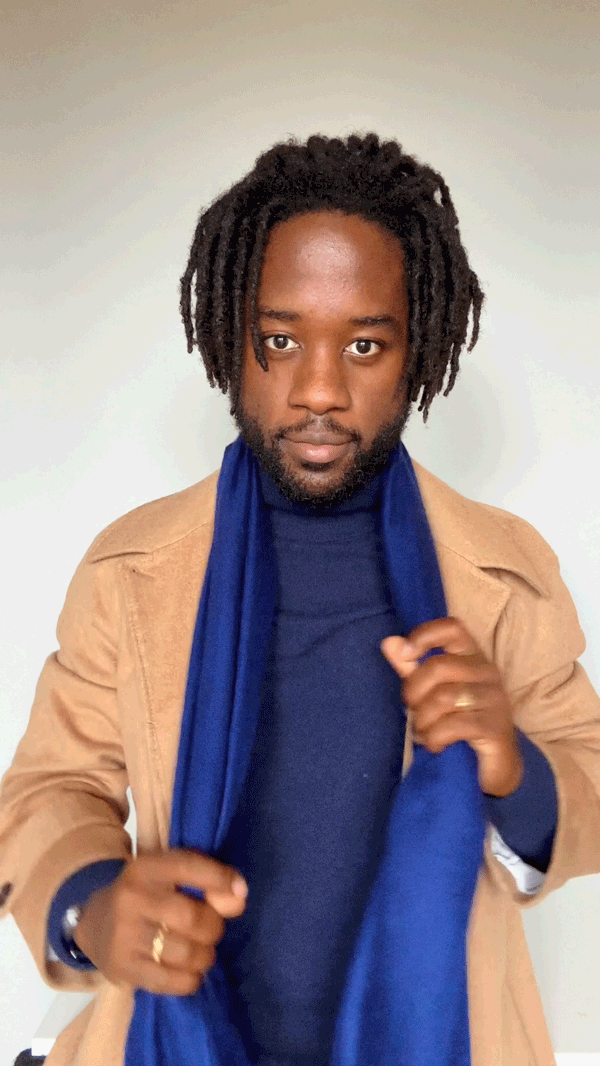

Simply start by draping the scarf over your neck, giving the side you’re going to wrap around your neck ample length. Wrap the long side all the way around your neck until both ends drape in front of you again. Grasp the loop and both ends and adjust until the loop is at your desired looseness and the tails line up as preferred.
2.The Drape
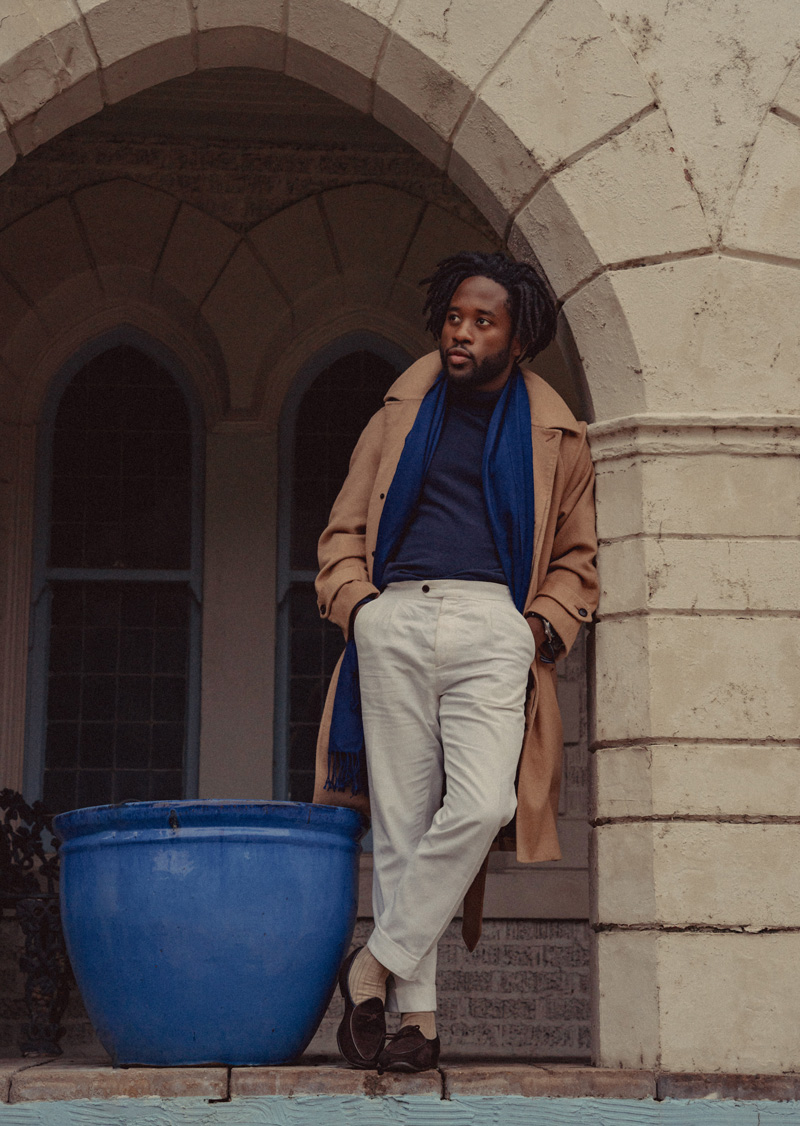

The easiest scarf to tie since, well, you don’t tie it, the drape gets placed over your neck, letting the tails to rest naturally under the front sides of your coat. This can be a smart choice if you just need to cover the back of your neck, are heading out quickly, or are just stowing your scarf while out and about.
“The drape works best with shorter scarves. It works mostly for adding interest to an outfit and looks best with an overcoat worn in a formal fashion. I wear most of my square silk scarves this way,” Daniel says.
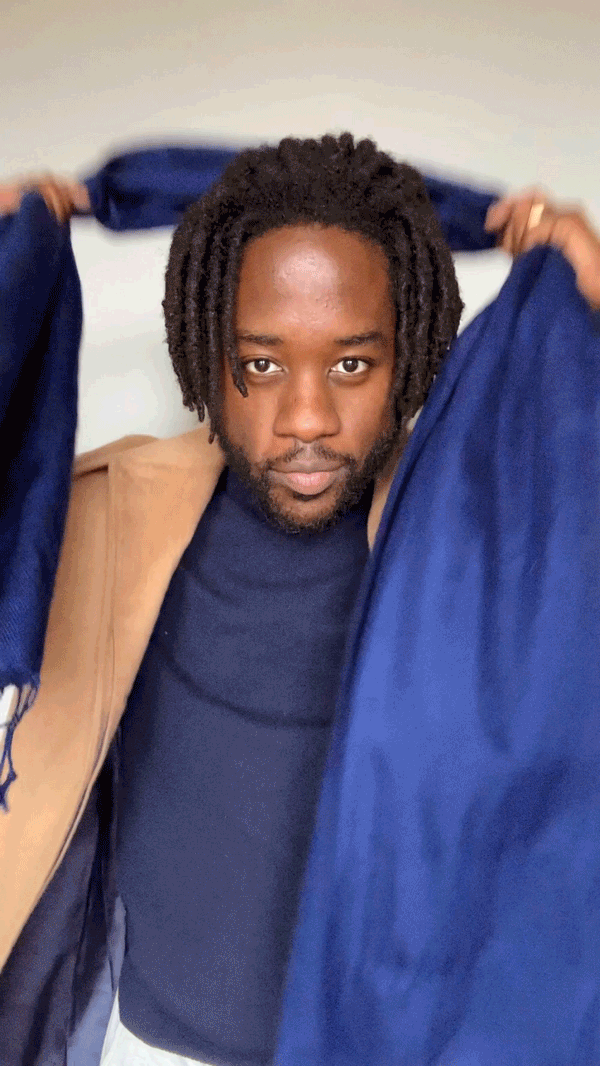

Place the scarf around the back of your neck, slide both sides until they fall at the preferred height.
3. The Reverse Drape Cross
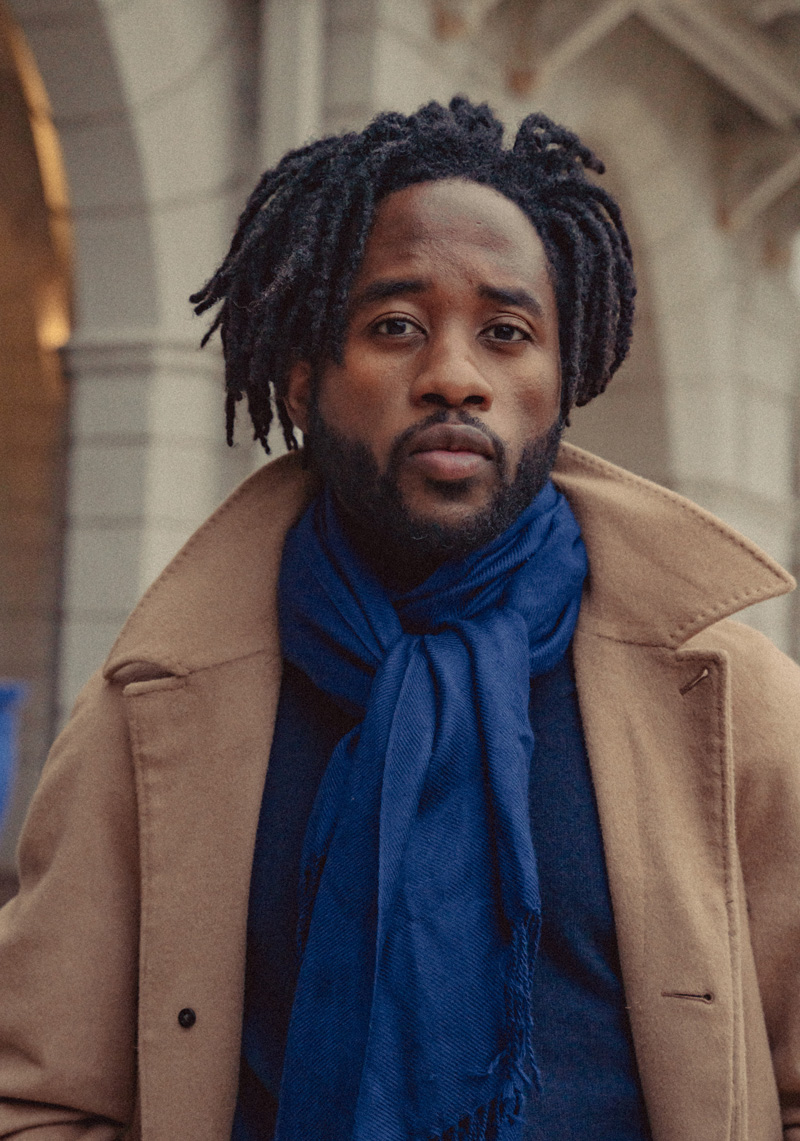

If you’re looking for a way to tie your scarf that feels a little more sophisticated, either to match a more formal occasion or to add some refinement to a minimalist base, the reverse drape cross fits the bill. While looking more complex than the others, it’s easy to tie, in fact, it’s only one extra move on top of the once around.
Daniel advises, “The reverse drape cross is the warmest one of them all and works well with longer scarves. It looks studied without being too fussy, and incredible with a fastened overcoat.”
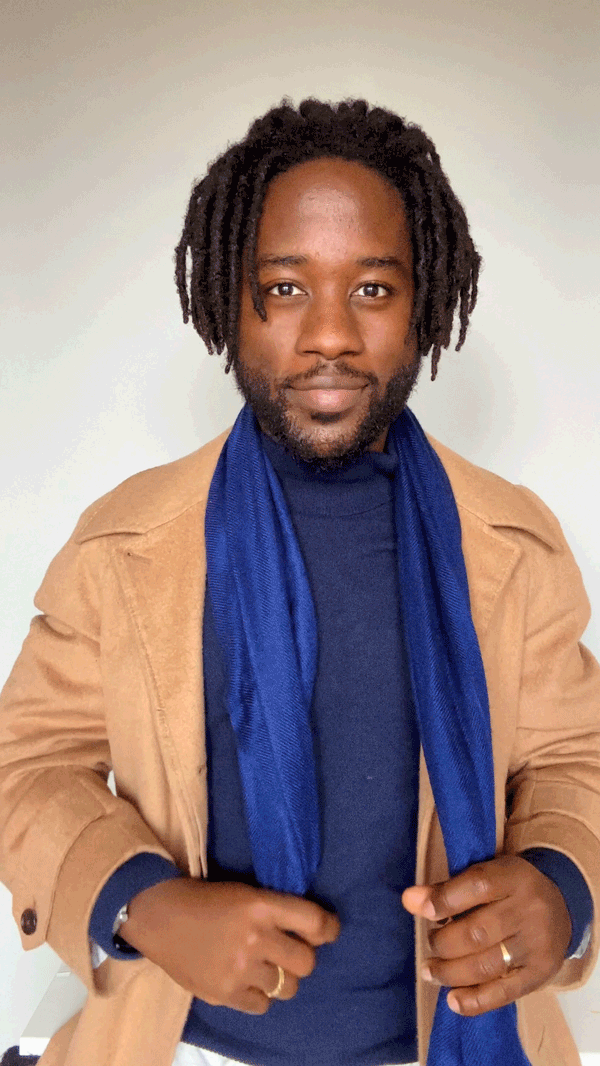

Create the once around, again, placing the scarf around your neck and adjusting so one side has more length. Then wrap the long end around the neck completely. The added move is to take the long end, cross over and continue up underneath both the short end and long end that were just crossed but in front of the loop, resting the long end over the front.
4. The Parisian Knot, Of Course
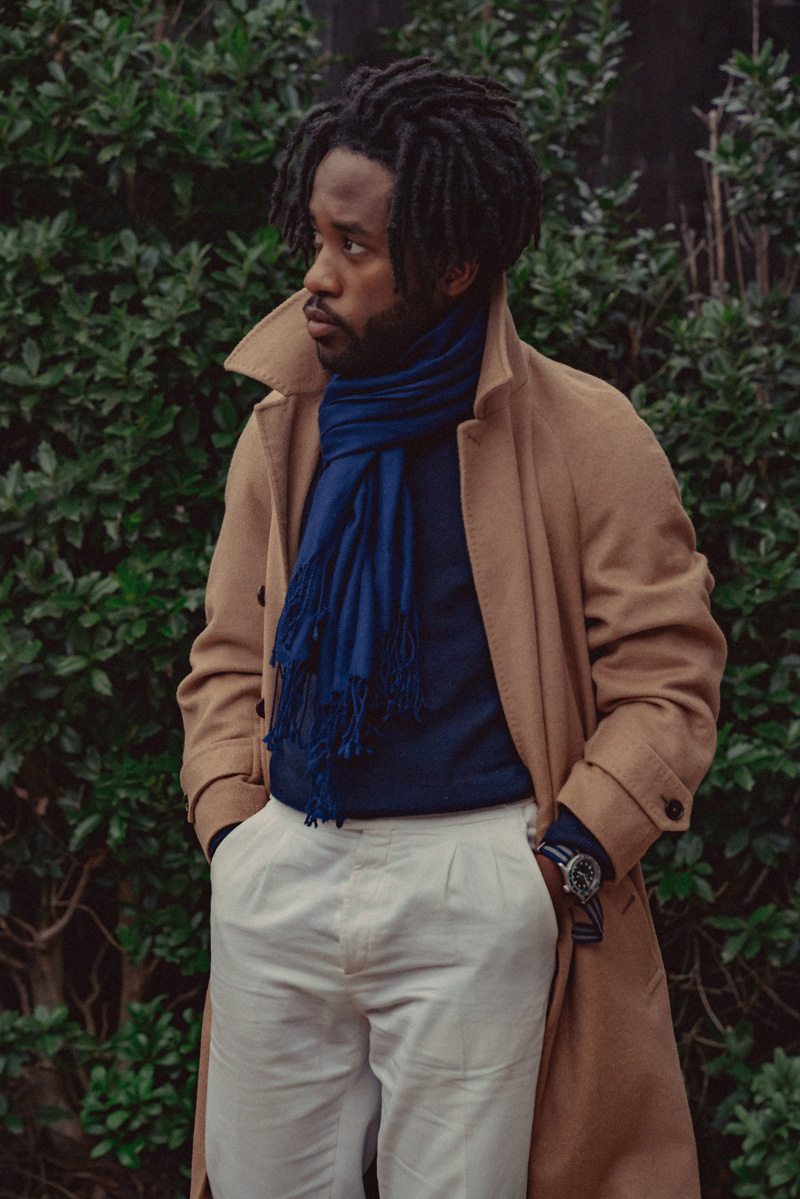

A deceptively simple way to tie scarf, that results both in a full and adjustable fit around the neck as well as a shorter length for the tails.
“The Parisian knot is also really warm, and works with most scarves lengths. I love how you can adjust the tightness of the knot to increase insulation. It’s popular for a reason. And the reason is its versatility I believe. It looks just at home with the most casual outfit as it does on a formal one,” Daniel says. “It’s the Swiss army knife of knots to me.”
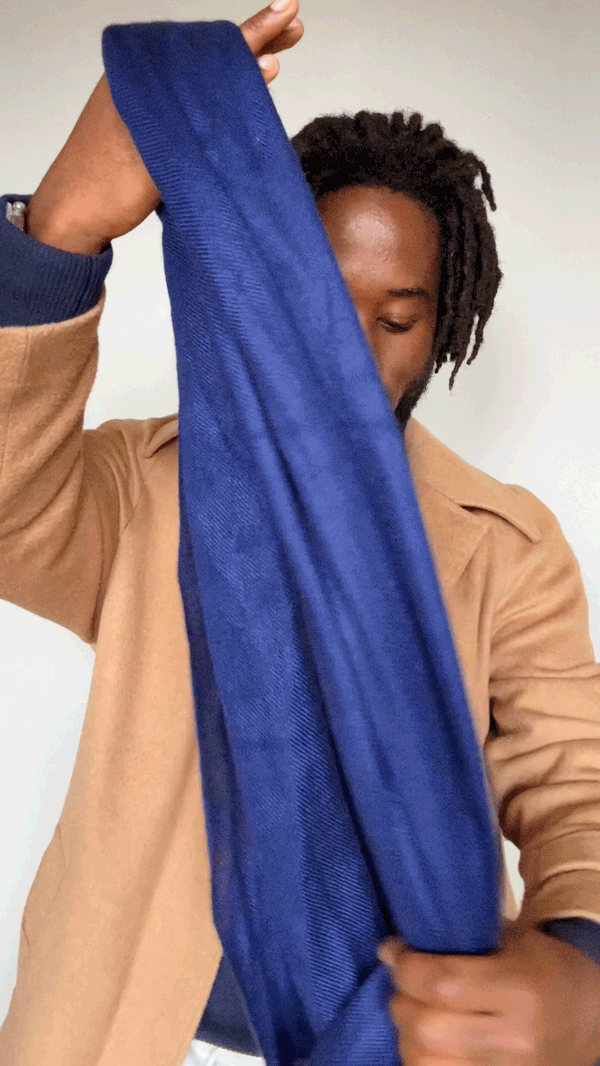

Begin by folding the scarf in half, then wrapping it around your neck. Place the two tail ends through the loop created where the scarf was folded in half. And voilà, a scarf knot that is classic and functional.
Get Daniel’s outfit style with his similar in-stock picks:
[ad_2]
Source link
Jarastyle Teen’s – #Ways #Tie #Scarf #Youll
Courtesy : https://www.primermagazine.com/2024/learn/scarf-knots

